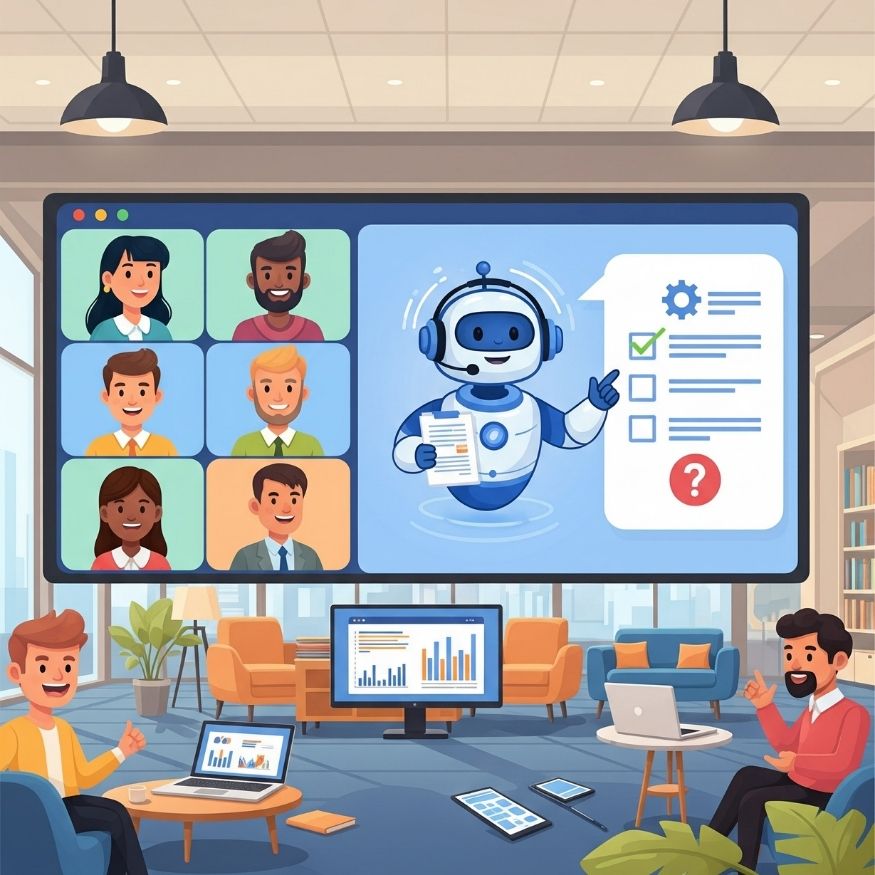Employee Experience in Focus
Companies are increasingly recognizing the importance of the “employee experience”. Just run a simple search on LinkedIn for professionals with “employee experience” in their job title and more than 77,000 results are instantly returned. Between economic uncertainty and a tightening labor market, the employee experience will be more critical than ever in 2023.
Here's why:
Attracting and retaining top talent:
In a tight labor market, attracting and retaining top talent is crucial for any company. And one of the key factors that attracts and retains employees is the overall experience they have while working at the company. This includes everything from the onboarding process and training to day-to-daywork environment and culture. Companies that prioritize employee experience are more likely to attract and retain top talent, as they will be seen as a more desirable place to work.
Boosting productivity and engagement:
Employee experience also has a direct impact on productivity and engagement. When employees feel valued and supported, they are more likely to be motivated and engaged in their work. This can lead to increased productivity and overall better performance. On the other hand, a negative employee experience can lead to low morale, high turnover, and low productivity.
Improving customer experience:
Employee experience and customer experience are closely linked. When employees are happy and engaged, they are more likely to provide better customer service. This can lead to increased customer satisfaction and loyalty, which can ultimately drive business success.
Promoting innovation and creativity:
A positive employee experience can also foster a culture of innovation and creativity. When employees feel empowered and supported, they are more likely to come up with new ideas and take risks. This can lead to the development of new products, services, and processes that can drive the company's growth.
Enhancing reputation and brand image:
A focus on employee experience can enhance a company's reputation and brand image. When employees are happy and feel supported, they are more likely to speak positively about the company to others. This can lead to increased positive brand sentiment, which can be beneficial in attracting customers, investors, and top talent.
Overwhelmed by HR tickets, emails, and chats? Let Botable handle the load
So, what can companies do to focus on employee experience in 2023? Here are a few ideas:
Onboard new employees effectively:
Onboarding is a crucial part of the employee experience. It sets the tone for the entire time an employee is with the company. To onboard effectively, companies should provide clear expectations, training, and support to help new hires get up to speed quickly.
Foster a positive and inclusive culture:
Culture is a key part of employee experience. To create a positive and inclusive culture, companies should invest in diversity and inclusion initiatives, encourage open communication, and promote work-life balance.
Offer development and growth opportunities:
Employees want to feel like they are growing and developing in their careers. Companies can support this by offering training and development opportunities, as well as clear career advancement paths.
Recognize and reward employee contributions:
Recognition and rewards can be a powerful way to show employees that their contributions are valued. Companies can implement employee recognition programs, offer bonuses and other rewards, and provide regular feedback to show appreciation for their work.
Foster work-life balance:
Work-life balance is becoming increasingly important to employees. Companies can support this by offering flexible work arrangements such as remote work options, and promoting a healthy work-life balance.
Bots or artificial intelligence (AI) powered virtual assistants:
Automation of repetitive tasks: Bots can handle repetitive and mundane tasks, freeing up employees to focus on more value-added activities.This can help increase efficiency and reduce burnout.
Improved access to information: Bots can be used to provide employees with quick and easy access to information they need to do their jobs. For example, a bot could be used to answer HR questions or provide access to company policies and procedures.
Streamlined processes: Bots can be used to streamline processes, such as expense reporting or leave requests, making it easier for employees to complete these tasks.
Enhanced communication: Bots can be used to facilitate communication within the organization, such as through group chat or scheduling tools. This can help improve collaboration and productivity.
Personalized assistance: Bots can be personalized to provide individualized assistance to employees. For example, a bot could be used to provide personalized recommendations for learning and development opportunities based on an employee's skills and career goals.
It's important to note that while bots can potentially improve the employee experience, they should not be used as a replacement for human interaction and support. It's important to strike a balance and use bots in a way that complements and enhances the employee experience, rather than replacing it.
Conclusion
In conclusion, employee experience is a critical factor that companies need to focus on in 2023. By prioritizing employee experience, companies can attract and retain top talent, boost productivity and engagement, improve customer experience, promote innovation and creativity, and enhance their reputation and brand image. Investing in employee experience is an investment in the long-term success of the company.
Answers your employees need, right when they need them
Meet Botable — the AI chatbot that handles everything from simple FAQs to complex, multi-step questions, so your team can focus on what matters. Built for HR, QA, and beyond.
Continue reading
Ready to see what Botable can do for you?
Book your demo now to see how Botable can transform your workplace.
Identify your unique challenges
Flexible pricing options
Easy integrations
Step-by-step implementation plan
Customize Botable for your workflow
Book a demo
.webp)



.jpg)





